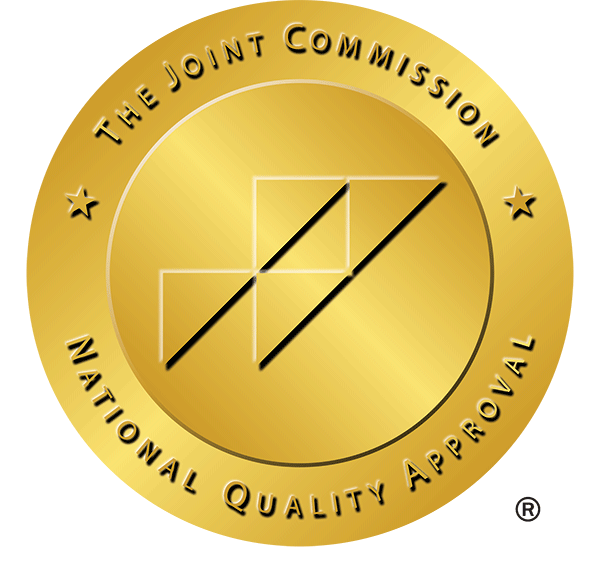Table of Contents
What Are the Risk Factors of Alcoholism?
Different alcohol addiction health risk factors come with substance use disorder. Some of the different risk factors are peer pressure, low self-esteem, growing up around alcohol or being in a culture that is accepting of excessive alcohol consumption, or a relationship with someone who struggles with alcoholism.1
A person that struggles with binge drinking or who consumes twelve to fifteen drinks per week can be a risk factor for alcoholism. Mental health issues and parental struggles with alcoholism also are big risk factors. All of these things can increase a person’s likelihood of struggling with alcohol use disorder.1
There are some short-term effects that excessive alcohol consumption can have on a person. As a person becomes more dependent on alcohol, the less they may experience negative effects.
One to Two Units
After a person consumes one to two units of alcohol of any kind, they may find that they are more talkative or social than normal, which is normal with moderate alcohol consumption. They will also experience an increased heart right and blood vessel expansion, which normally gives a feeling of being loose or less guarded.2
Four to Six Units
When a person has consumed between four to six units of alcohol, it will begin to affect the nervous system. Alcohol will begin to impact a person’s ability to make judgments or decisions. Normally, it will lead to reckless behavior. A person may also feel lightheaded, causing a decline in reaction time or coordination. 2
Eight to Nine Units
At this point, a person’s reaction times slow down significantly. The liver can only metabolize so much alcohol in a period. At eight to nine drinks, the liver will be unable to process it all, causing a hangover the next day. 2
Ten to Twelve Units
A person will experience heavy impairment after ten to twelve units. The person might become drowsy, and they could suffer from alcohol poisoning. It will lead to other symptoms such as nausea, vomiting, indigestion, and diarrhea. 2
More than Twelve Units
At twelve or more drinks, a person is at serious risk of alcohol poisoning. The risk grows if they were consumed in a brief time. It can impact a person’s ability to breathe, heart rate, and gag reflex. If it becomes extremely serious, the effects could become fatal or put the person in a coma. 2
Dangers of Mixing Alcohol with Other Drugs
Alcohol should not be mixed with different substances. Depending on what class of drug the other substance is changes the different dangers a person might face. Accidental overdose is always a possibility.
Adderall
Alcohol is a depressant, while Adderall is a stimulant. Most people combine these drugs because they believe that they will cancel out one another. However, they will work simultaneously in the body making it more difficult to see signs of alcohol poisoning, heart problems, or other serious health conditions.3
Antibiotics
Alcohol reacts differently to different antibiotics, so it is important to discuss the topic with your doctor before consuming it. Alcohol increases the possibility that you experience side effects. Some possibilities are vomiting, nausea, migraines, and stomach cramps.4
Antidepressants
Because alcohol is a depressant, it can increase symptoms of depression and mental health issues while on antidepressants. The side effects could become more severe, a person can become impaired, and you could become more depressed.5
Antihistamines
It is important to not drink alcohol while on antihistamines, allergy medications. It can cause impairments, inability to make decisions, and confusion.6
Cocaine
Energy Drinks/ Caffeine
Ecstasy
Legal and Illegal Opioids
Marijuana
Marijuana can be unpredictable with how it interacts with alcohol because it impacts people differently. One of the main symptoms is nausea and more extreme side effects of both drugs, including paranoia, sleepiness, and depression.7
Hallucinogens
Meth


Our Luxury Detox & Rehab in California is Here For You Along Your Wellness Journey
What Are the Short-term Risks of Drinking Alcohol?
Digestive Issues
A person may experience digestive issues when they abuse alcohol. It is very common for people to have diarrhea, upset stomach, which could eventually lead to vomiting.8
Decreased Coordination
A person can also experience decreased coordination and impairment, which might lead to a decrease in perception, stumbling, distorted hearing and vision, and drowsiness. An increase in impairment is extremely common among people once they have consumed multiple drinks within a short period.8
Blackouts
If a person drinks too much, they may also blackout, which is when a person forgets their actions and can no longer recall the experience. During these times, people can suffer from an extreme lack of judgment that can have fatal consequences.
Malnutrition
Over time, alcohol can cause dehydration and things such as vomiting. Due to this issue, a person can lose nutrients due to excessive diarrhea and vomiting.8
Finally, alcohol abuse can lead to other serious side effects in the short term such as migraines, troubles with breathing, unconsciousness, anemia, coma, or alcohol poisoning.8
What Are the Long-Term Risks of Drinking Alcohol?
Excessive alcohol use can also lead to some serious long-term risks. Sadly, many people who suffer from alcoholism tend to die at a younger age than their counterparts due to some of the negative impacts.
Health Problems
Long-term health problems can occur with people that struggle with alcoholism. They can deal with high blood pressure, increased risk of stroke, liver disease, nerve damage, ulcers, cancer, and heart disease. All of these can be fatal.8
Relationship Issues
Alcoholism also leads to relationship issues. A person may have family issues due to the strain that the addiction places on the relationships. In addition, there could be unintentional injuries that could lead to long-term disability or strain within relationships.8
Domestic Violence
The risk of domestic violence also increases with alcohol abuse, leading to bad situations for family members and the person themselves. Sexual assault and other traumatic events increase with alcohol abuse.
Alcohol Poisoning
One of the most significant long-term risk factors is alcohol poisoning. Once a person reaches a threshold and there is too much alcohol in the blood, the body starts to shut down, leading to a possible coma or death. Alcohol poisoning is one of the worst effects for an individual.8
Finally, there is an increase in car crashes and firearm injuries. A person can also develop ulcers, gastritis, vitamin deficiency, and several other disorders.8
Escape Addiction For Good.
You do not have to face recovery alone. Reach out to Stillwater Behavioral Health to learn how to end the cycle of addiction and regain a hold of your life. Fill the form and one of our caring treatment coordinators will contact you shortly.
Open 24 hours, 7 days a week
(866) 232-9103
Contact Us
What Are the Risk Factors for Alcohol-Related Health Complications?
There are several long-term risk factors of alcoholism that lead to serious health complications. Some of these are rarer than others, but the more extreme the addiction, the more likely someone is to develop some of them.
High Blood Pressure
Stroke
Pancreatitis
Liver Disease
Cancer
A person can develop several different types of cancer due to alcoholism. Some are breast, throat, esophagus, liver, colon, mouth, and rectum cancer.9
Depression
Alcohol is a depressant. Therefore, it can lead to an increase in mental health issues, especially over a long period. When a person becomes dependent on the substance, the body starts to struggle with releasing natural chemicals such as dopamine without the substance, causing a deficiency.9
Dementia
Infertility


What To Do When Alcohol Affects Your Health?
If you are noticing that alcohol has been impacting your health negatively, you should seek medical treatment right away. When a person is dependent on alcohol, they will experience withdrawal effects which could be fatal if not monitored by a healthcare professional. There are many places you can go for help, too.
Addiction Treatment
Addiction facilities are really good to help with alcoholism. A person can go through treatment programs both inpatient and outpatient, which allows them to develop a program that works best for them. Many addiction treatment facilities give therapy opportunities as well.
Support Groups
Support groups such as Alcoholics Anonymous help to support someone as they continue to go through their recovery process. By finding a sponsor, a person can find someone to mentor them and guide them through the twelve steps, allowing them to change behaviors that will help them overcome the addiction.
Self-control
Finally, self-control can be super important when seeking out help. Ultimately, it is your decision on whether or not you want help. Learning self-control tactics through things such as cognitive-behavioral therapy can significantly help someone.
Alcohol addiction health risk can be extremely deadly. Not only could someone suffer from alcohol poisoning in the short term, but they can also have fatal disorders develop over time. If you are struggling with alcohol addiction health risk, seek medical attention for help with the recovery process.
Resources
- https://www.healthline.com/health/alcoholism/basics#risk-factors
- https://www.nhs.uk/conditions/alcohol-misuse/risks/
- https://www.healthline.com/health/adhd/adderall-and-alcohol#adderalland-alcohol
- https://www.healthline.com/health/antibiotics-alcohol#antibiotics-and-alcohol
- https://www.mayoclinic.org/diseases-conditions/depression/expert-answers/antidepressants-and-alcohol/faq-20058231
- https://www.goodrx.com/blog/drinking-alcohol-with-allergy-meds-benadryl-zyrtec/
- https://www.healthline.com/health/alcohol-and-weed
- https://www.drugfreeworld.org/drugfacts/alcohol/short-term-long-term-effects.html
- https://www.cdc.gov/alcohol/fact-sheets/alcohol-use.htm




